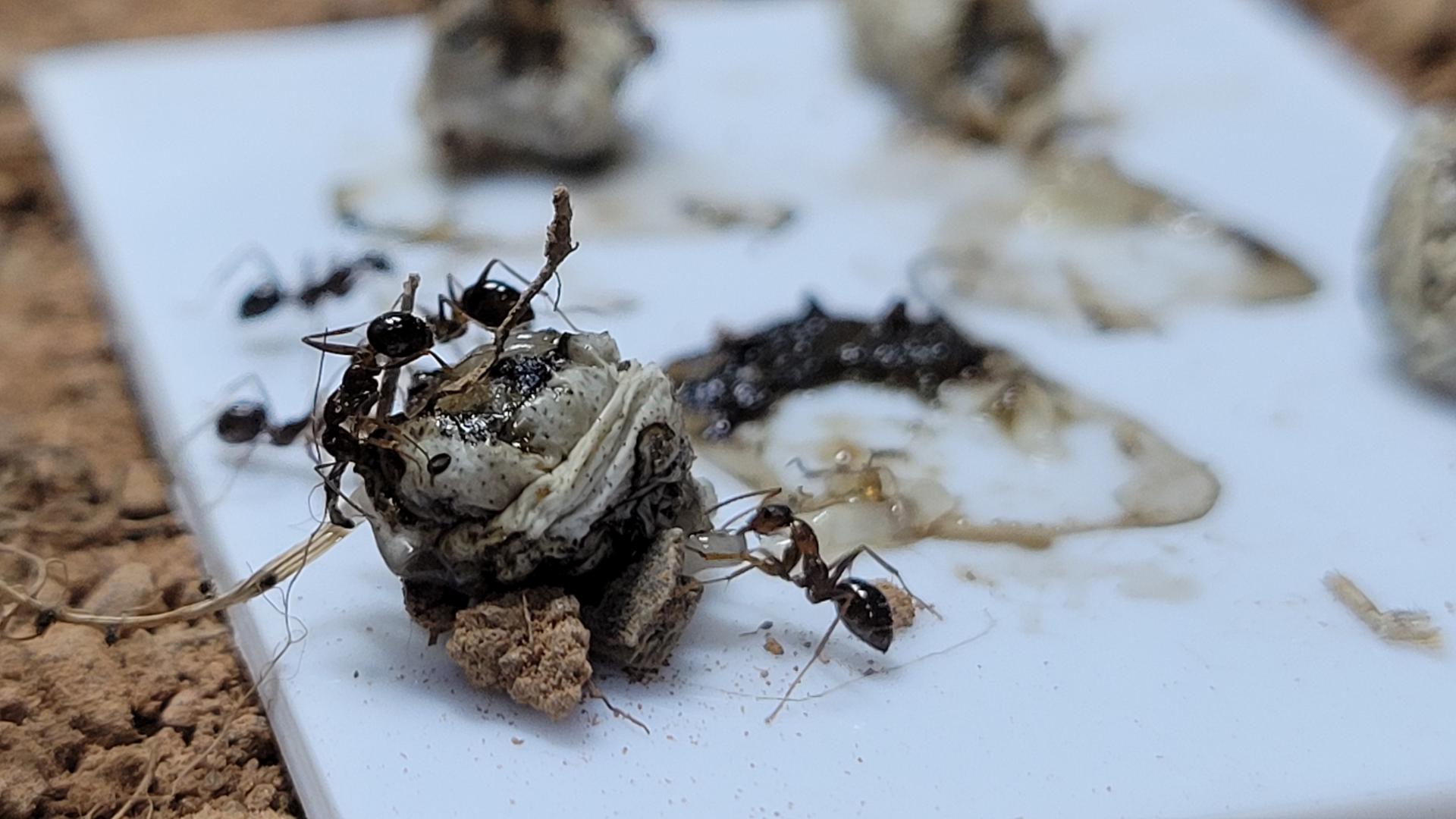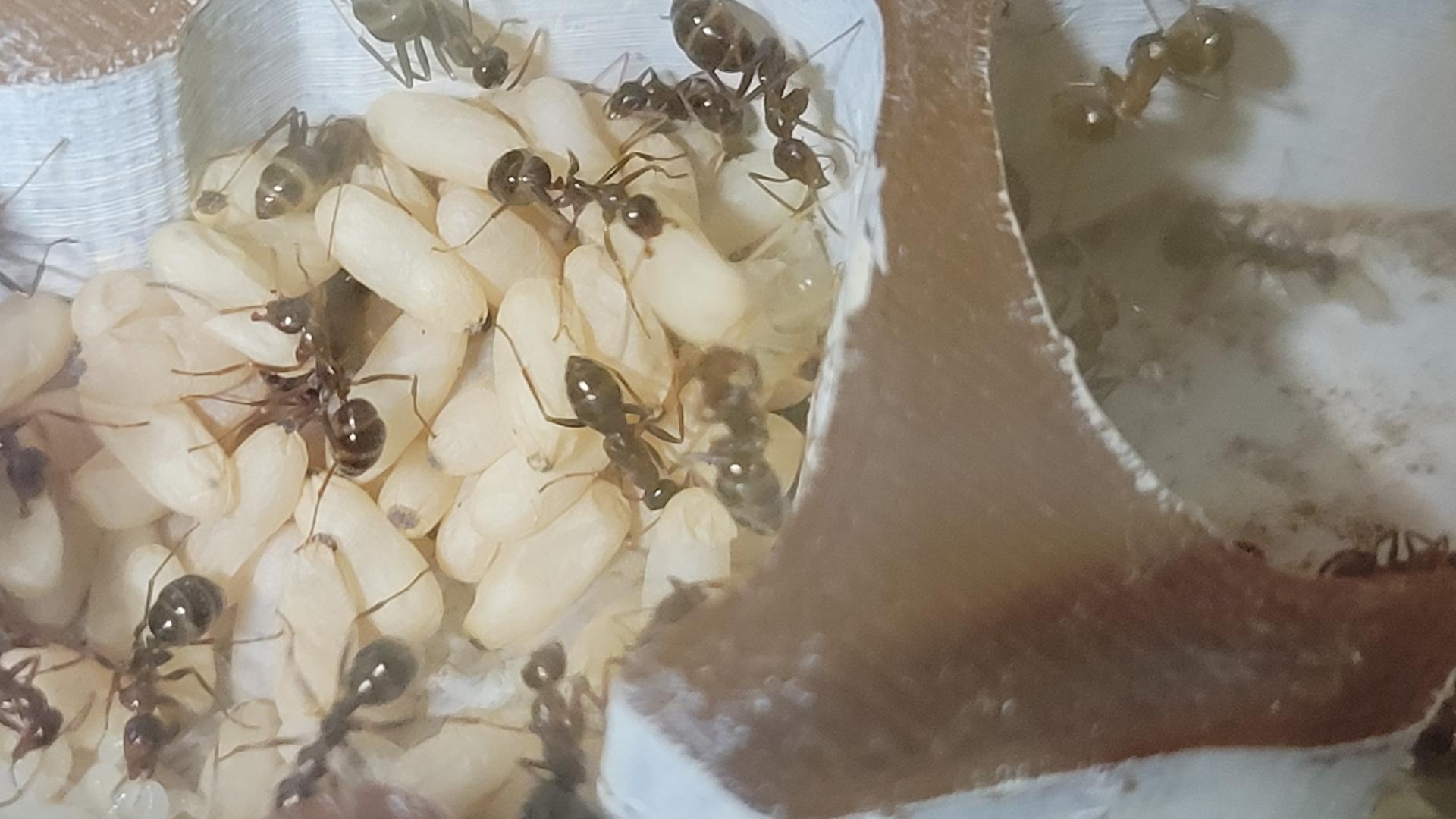I stated in a previous post that I had caught a Formica queen in Tahoe. Well, she layed 3 eggs. Now I have never kept Formica before, so does anyone have any tips?
- Formiculture.com
- Forums
- Gallery
- Members
- Member Map
- Chat

I stated in a previous post that I had caught a Formica queen in Tahoe. Well, she layed 3 eggs. Now I have never kept Formica before, so does anyone have any tips?
I'll try to answer from what I understand from my research and my foggy memory of my colony 3 years ago. Anyway, Formica is a very varied genus, so, there probably is no singular guide for the whole of it.
The species that establish colonies through social parasistism are, in many cases, aggresive, quite tricky to found due to the aforementioned parasitism, and in many cases protected by law as they are incredibly important for forest habitats ( gets even trickier when attempting to care for dedicated slave makers like in the now not used subgenus of Raptiformica ).
Social parasites like those from the now unused subgenus of Coptoformica aside, Formica are usually timid and easily scared, rarely aggresive ( there are some exceptions ), and easy to care as they are adaptable, can be usually kept in room temperatures but take kindly to any form of heating, like it quite dry ~50% humidity, feed insects as they do not eat protein in other forms, honey slightly diluted by water, try to avoid disturbances as that can send them into panic mode.
( quick note: I have no experience with the now unused subgenus of Neoformica and my research mainly concerned the now unused subgenus of Serviformica )
( sorry for using outdated nomenclature, but in Poland, the distinctions are often still found in texts and I simply find it easier to still use it, similarly how some ant shops still use Camponotus xiangban or some people still referring to ants from such genus'es like Colobopsis or Dinomyrmex as Camponotus )
Edited by NPLT, April 19 2021 - 12:07 AM.
Care for Formica is pretty standard. You want to keep in mind that they are very sensitive ants, so the less you disturb them the better. Whatever formicarium you keep them in needs to be able to absorb the formic acid they spray when they get spooked. I think the ideal is a dirt style ant farm nest, but you will lose visibility. Tarheel Ants nests would be great, too. Steer clear of anything acrylic. They really like small foods they can drag quickly into their nest.
Nice. I just received a mini hearth and already have that ready for the future.


Edited by Canadant, April 21 2021 - 9:08 AM.
That's an impressive colony you got there!
0 members, 1 guests, 0 anonymous users